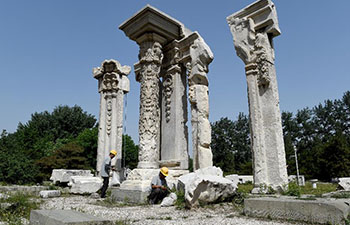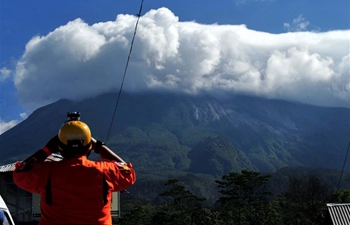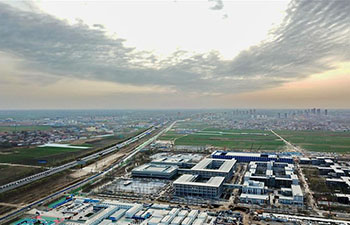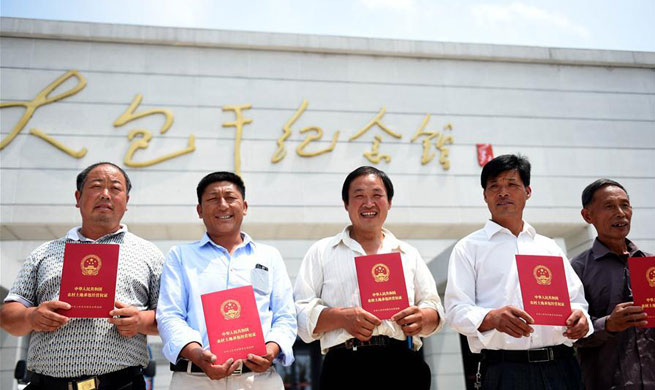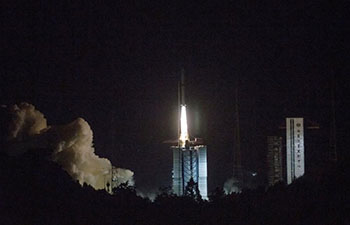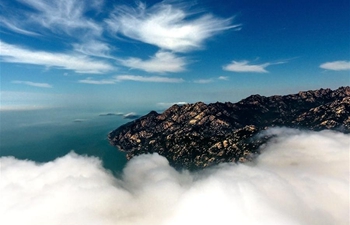XINING, May 23 (Xinhua) -- Ranger Losonchokyi carries nothing but a camera, a telescope, a flask of butter tea and a handful of tsampa -- roasted barley flour -- during his daily patrol at a nature reserve in northwest China's Qinghai Province.
In 2015, Losonchokyi, 60, joined a patrol team at Longbao National Nature Reserve, which was established in 1986 to focus on protecting black-necked cranes.
The species is classified as vulnerable by the International Union for Conservation of Nature (IUCN) and under the first class protection in China.
From April to October every year, thousands of black-necked cranes fly to Longbao, an important breeding site for the species.
Losonchokyi spends hours every day patrolling around the breeding sites at the reserve to prevent Tibetan sand foxes and loose or feral herding dogs from harassing breeding cranes, eating eggs, and killing chicks.
"The black-necked crane is a symbol of pureness and happiness in my hometown," said Losonchokyi. "I am lucky that my job is to protect them although it is not always an interesting work."
Longbao has 10 rangers focussed on protecting the cranes. On summer evenings, the rangers pitch tents near the breeding sites to prevent wild animals, humans and livestock from disturbing the nesting cranes.
"It is difficult to walk in the reserve during summer as the wetland is fed by high precipitation, groundwater, and glacier meltwater," said Losonchokyi.
"We don't wear shoes while patrolling at the reserve because our shoes would get stuck into the wetland," said Losonchokyi.
Losonchokyi earns about 1,800 yuan a month (about 280 U.S. dollars). He said he has never thought of giving up this hard job as he has seen an increasing number of black-necked cranes flocking to his hometown in recent years.
There were only about 20 black-necked cranes nesting at Longbao in 1980s, said Basangtserin, an official with the nature reserve.
"Thanks to the improved protection of cranes and especially crane eggs, now more than 300 cranes fly to Longbao every year," said Basangtserin.
The 10,000-hectare reserve has electronic monitoring equipment installed to help better the cranes, according to Basangtserin.
The Longbao National Nature Reserve is situated in Sanjiangyuan area in Qinghai Province which has 8.1 million hectares of wetlands. The environment has been damaged by human activity in the area.
In 2015, a total of 963 rangers like Losonchokyi have been employed across the 22 counties and districts in Sanjiangyuan, preserving a 1.9-million-hectare area of wetlands.




